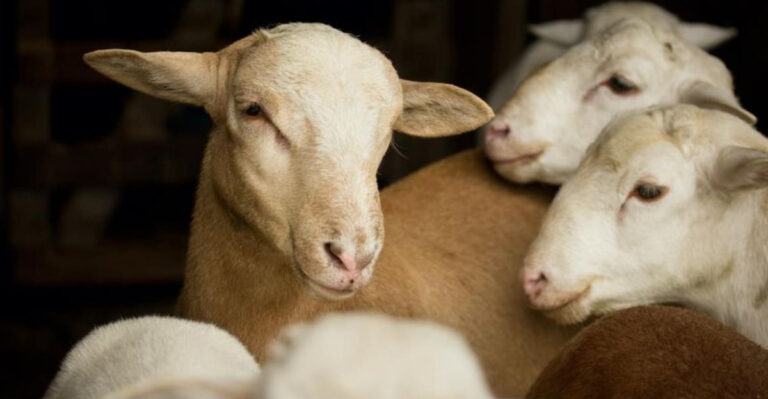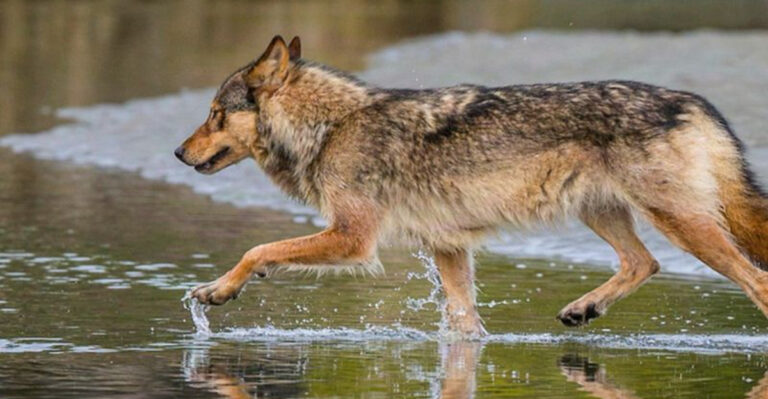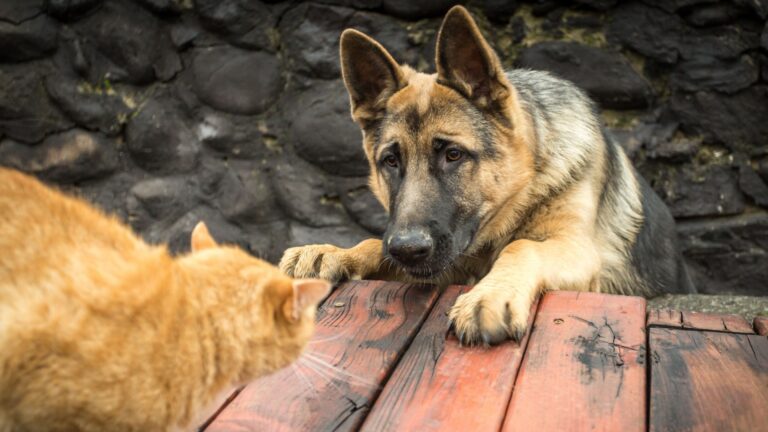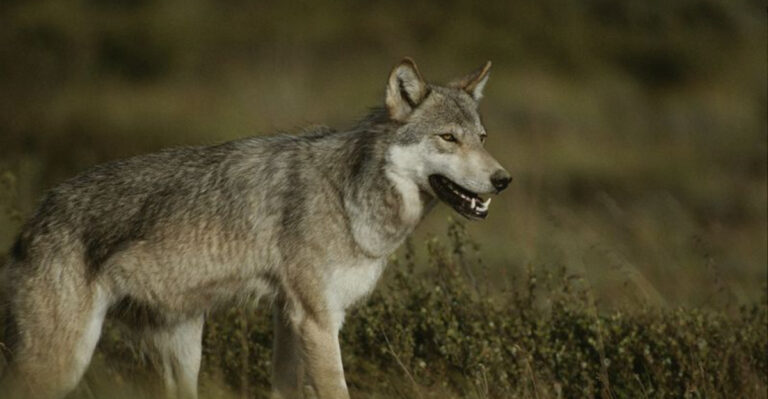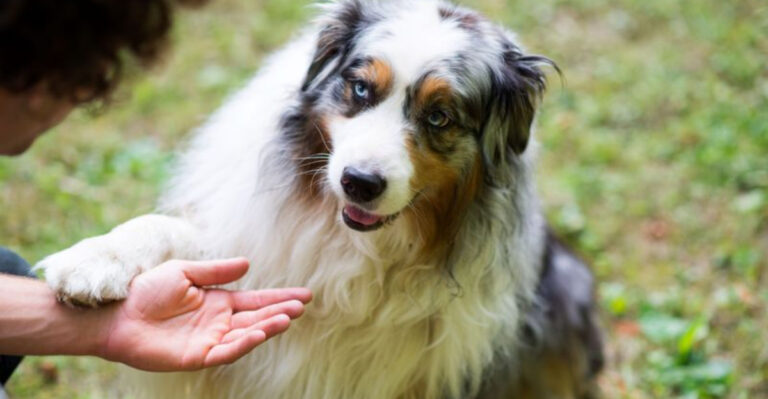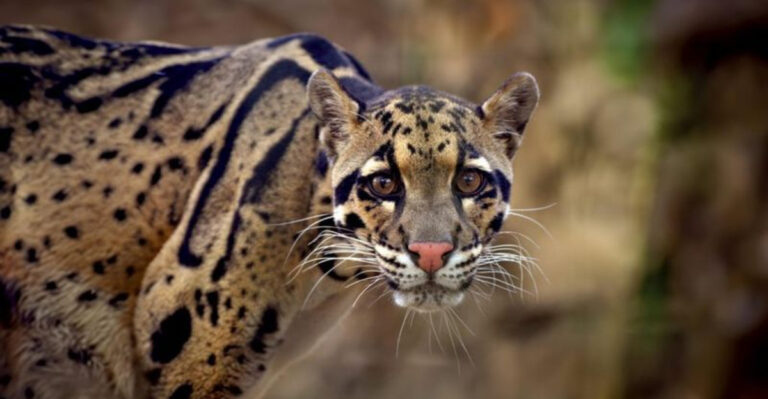14 Reasons Why A Coyote Can Never Be A Good Pet
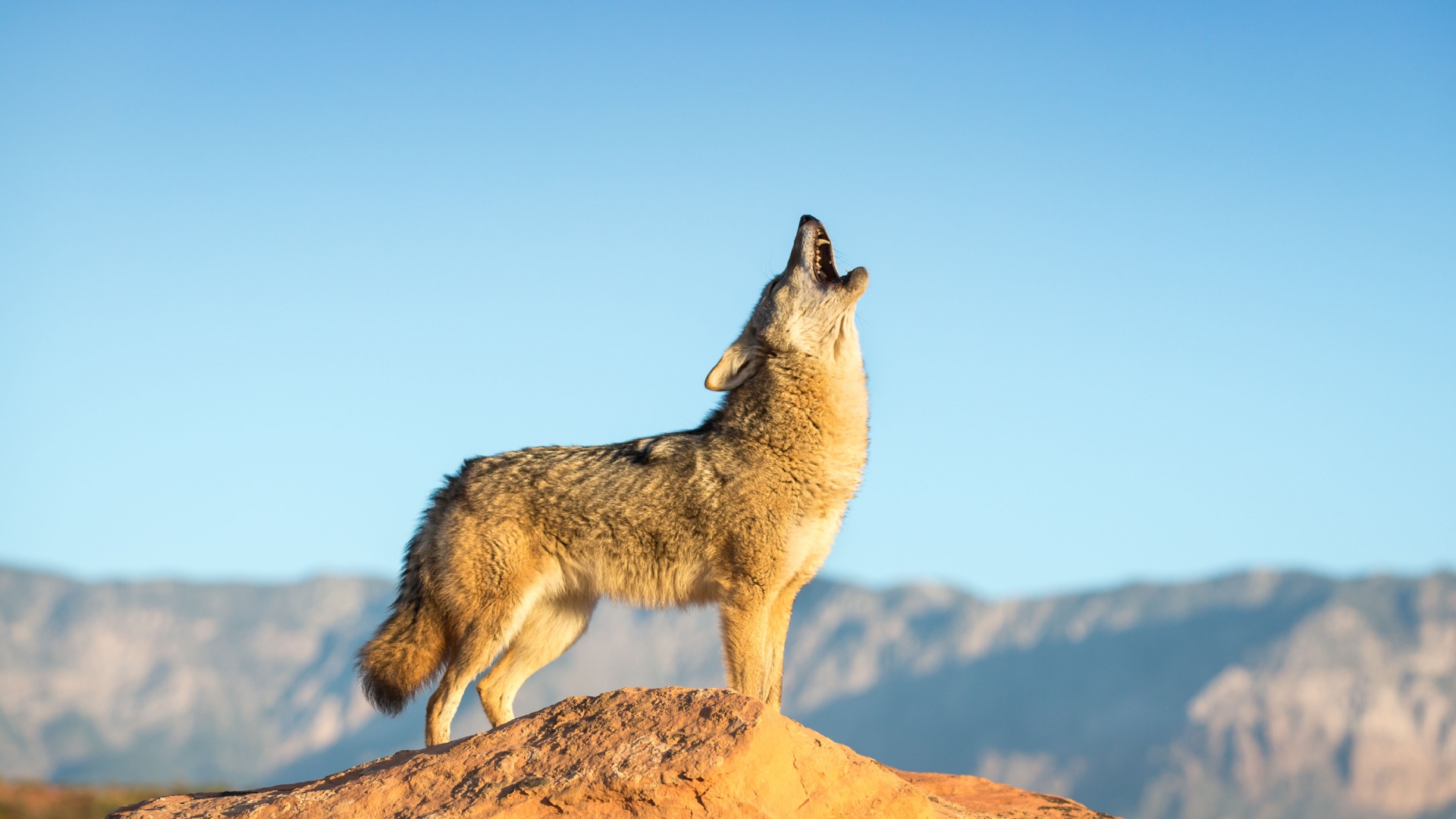
Coyotes, while fascinating creatures of the wild, are often romanticized as potential pets. However, the reality is far from this dreamy perception.
Owning a coyote is fraught with challenges that make them unsuitable companions for domestic life.
From their instinctual behaviors to legal complications, there are numerous reasons why a coyote can never truly be a good pet.
1. Unpredictable Behavior
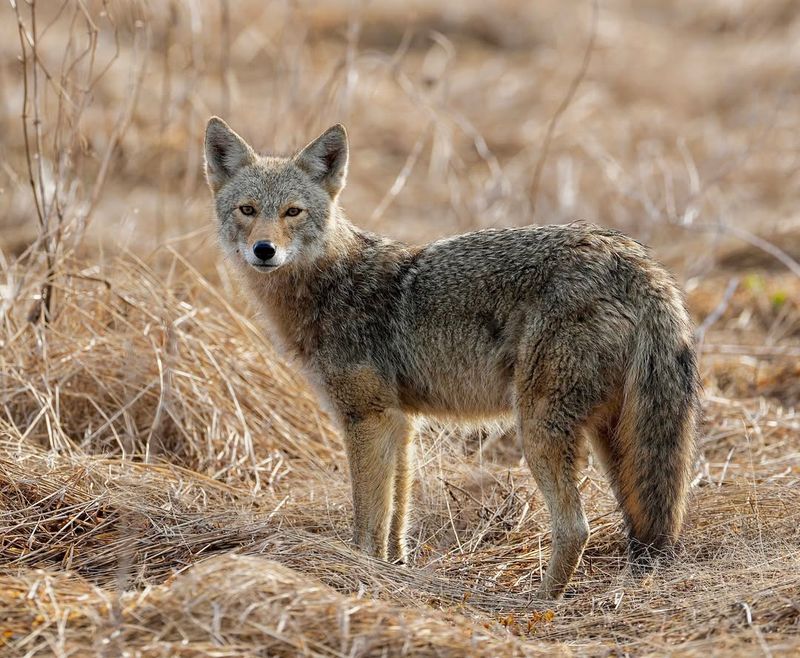
Coyotes have an unpredictable nature that can be quite alarming in a pet. They are known for their erratic behavior, which can shift from curious and playful to aggressive without warning. This is not the sort of temperament you want in a household pet, especially one that’s expected to coexist peacefully with humans and possibly other animals.
Unlike domesticated dogs that have been bred for specific traits over generations, coyotes retain their wild instincts. These instincts can lead to unexpected reactions to stimuli such as loud noises, unfamiliar people, or changes in their environment. While some may argue that training can mitigate these tendencies, the truth is that a coyote’s behavior remains largely unpredictable.
Even when raised from a young age in captivity, coyotes never fully lose their wild instincts. This poses a significant risk for anyone considering them as pets, as their natural behaviors can manifest in destructive or dangerous ways. It’s a gamble that most pet owners are unwilling to take, and for good reason.
2. High Prey Drive
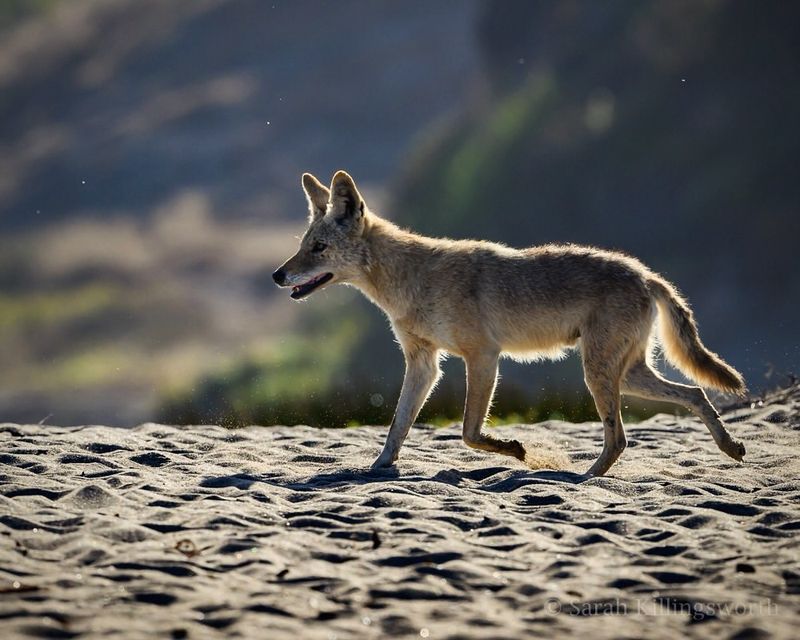
This natural instinct is deeply ingrained and cannot be easily trained out. Imagine living with a pet that sees the other household pets as potential prey – it’s a nightmare! This high prey drive means they are constantly on alert, tracking movements and reacting swiftly. Even in a controlled environment, a coyote’s hunting instincts are triggered by the slightest motion.
This is problematic not only for small pets like cats or rabbits but can also be a cause for concern in neighborhoods with small children. The risk of a coyote acting on its prey drive is ever-present, and this makes them unsuitable for households looking for a calm and safe pet. Training can help to a certain degree, but it cannot completely overrule such strong instincts.
Coyotes are hardwired to hunt and chase, and this trait can surface at any time, regardless of the situation. The potential for harm is too great to ignore, which is why they make poor pets.
3. Legal Restrictions
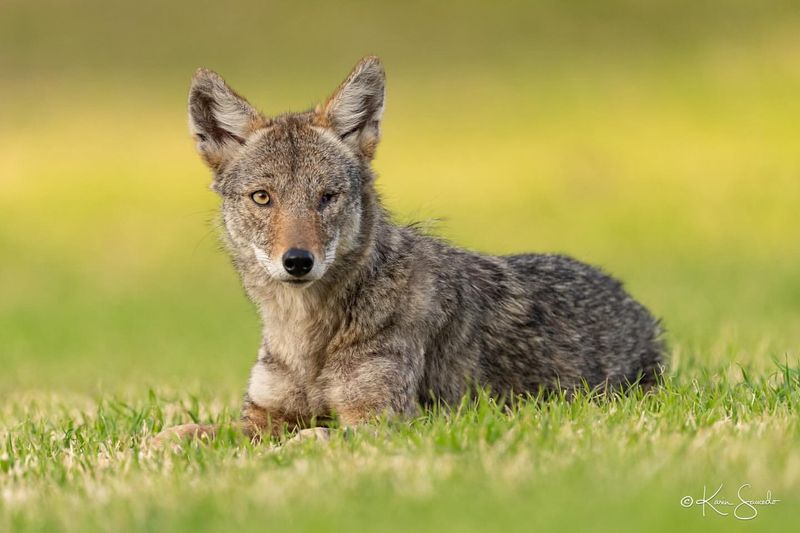
Keeping a coyote as a pet is often illegal in many areas due to the dangers they pose and the difficulty in managing them. Various state and local laws strictly prohibit the ownership of wild animals like coyotes, reflecting the widespread acknowledgment of the risks involved. Even if someone were determined enough to try, navigating these legal mazes is daunting. The restrictions are in place to protect both the coyote and the public.
Coyotes have specific needs that are difficult to meet in a typical home environment. Moreover, their presence in residential areas could lead to conflicts, injuries, or even fatalities. Law enforcement and wildlife authorities are keenly aware of these dangers, hence the stringent laws.
Anyone considering a coyote as a pet would need to research extensively about local wildlife regulations. The legal complications and potential penalties are significant deterrents, reminding potential owners that wild animals belong in the wild, not in suburban backyards.
4. Need For Space
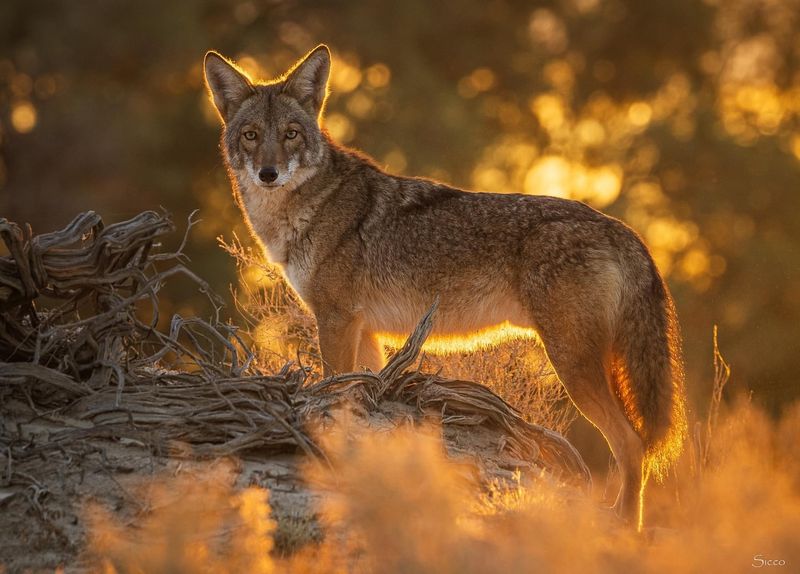
Coyotes thrive in environments that offer ample space for them to roam and explore. Unlike domestic dogs, they are not content with small yards or confined spaces. Their natural habitat includes vast territories, and they cover large distances in search of food and adventure. Trying to replicate this in a home setting is nearly impossible.
The need for space ties back to their instinctual behaviors. Without adequate room to engage in natural activities, a coyote can become stressed and act out in destructive ways. This not only poses a risk to the pet owner but also to the surrounding community. A confined coyote is an unhappy one, and its frustration can manifest in attempts to escape or aggression.
Additionally, providing such space is not feasible for most pet owners. While a park or a large backyard might seem sufficient, it pales in comparison to the wilderness they are accustomed to.
The scale of their requirements makes it clear that they are best left in their natural habitats, where they can live freely and healthily.
5. Complex Dietary Needs
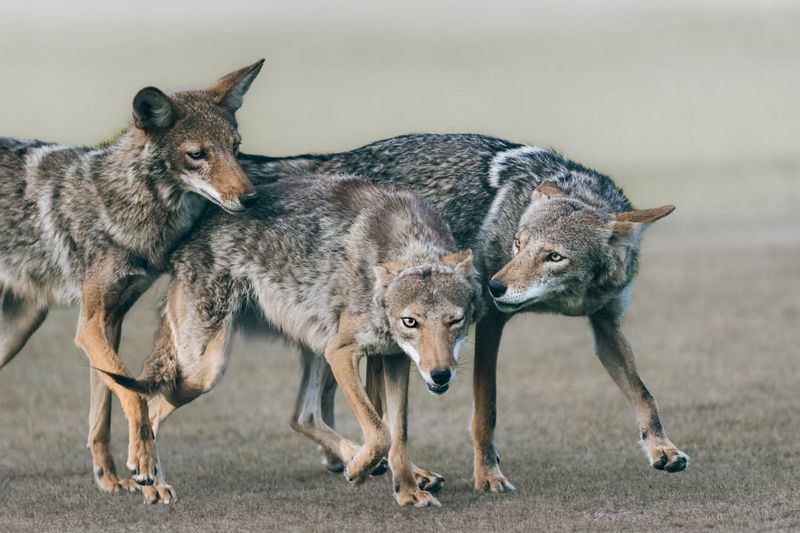
Unlike dogs, which can thrive on commercial pet food, coyotes require a diet that aligns closely with what they would naturally consume in the wild. This includes small mammals, birds, and even certain fruits and vegetables. Attempting to replicate this diet in a domestic setting is not only costly but also logistically complex.
Most people are not equipped to handle the diverse nutritional needs that a coyote demands, leading to potential health issues if their diet is not managed correctly. Furthermore, maintaining a proper diet is crucial for their overall health and well-being. Any deficiencies in their nutrition can lead to illness or behavioral problems, adding to the challenges of keeping them as pets.
The intricacies of their dietary needs underscore why they are better suited to life in the wild, where food sources are naturally abundant and varied.
6. Socialization Challenges
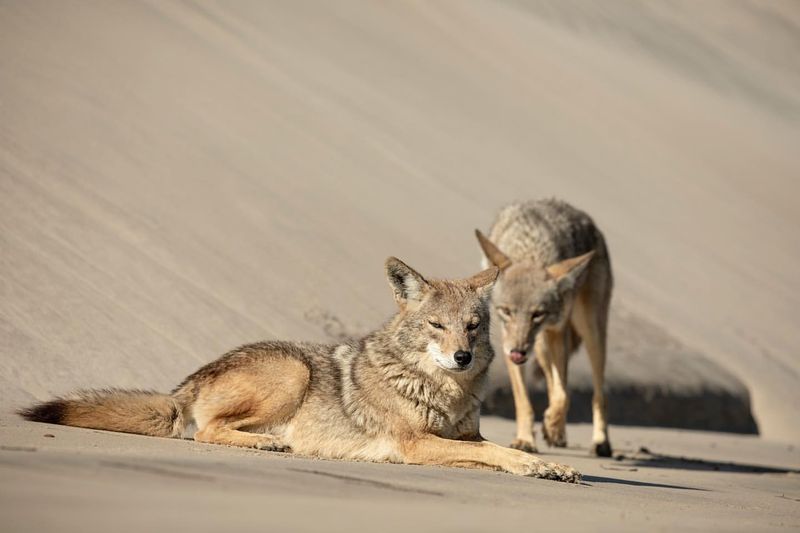
Coyotes are naturally solitary creatures, and this makes socializing them with humans and other pets a significant challenge. Unlike wolves, which are known for their pack mentality, coyotes often prefer to operate alone or in small family units. This trait can make it difficult for them to integrate into a household setting.
The process of socialization is crucial for any pet, but with coyotes, it involves navigating their natural inclinations. They may not respond well to traditional training methods, and their interactions with humans can be unpredictable. This unpredictability extends to interactions with other pets, where a coyote’s wild instincts can come into play, leading to conflicts.
Moreover, even if a coyote appears to be socialized, there is always an underlying potential for it to revert to its natural behaviors. This risk makes it hard to trust them entirely in social settings, contributing to the ongoing debate about their suitability as pets.
Their solitary nature is best respected in the wild, where they can thrive on their terms.
7. Health Risks
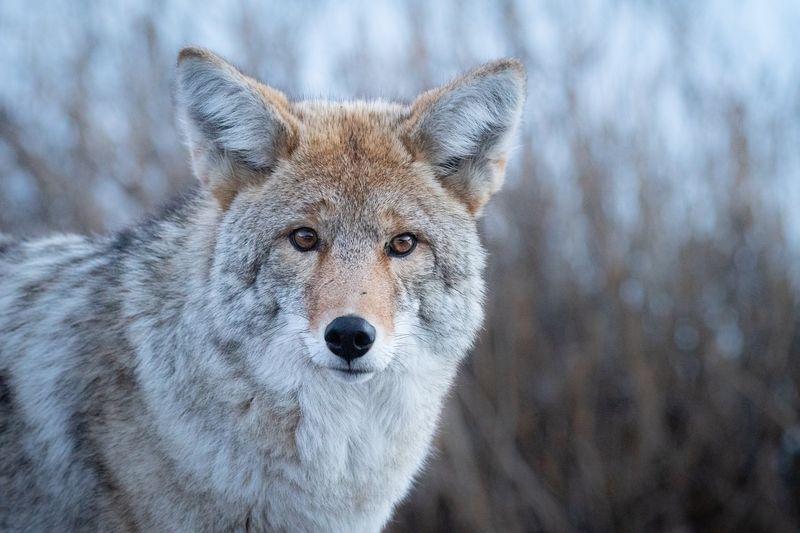
They are carriers of various diseases such as rabies, distemper, and mange, which can easily spread in a household setting. The potential for zoonotic diseases, which can transfer from animals to humans, is another cause for concern. Caring for a coyote involves regular health check-ups and vaccinations, similar to domestic pets, but with more stringent requirements.
Not all veterinarians are equipped or willing to treat wild animals, making it difficult to find proper medical care. This can lead to untreated illnesses that pose risks to everyone involved. Furthermore, the stress of captivity can exacerbate health issues in coyotes, leading to a deterioration of their well-being.
Their wild instincts do not adapt well to confinement, and this can manifest in both physical and psychological health problems. These challenges highlight yet another reason why coyotes are best left in their natural environments, where they can maintain their health more naturally.
8. Escape Artists
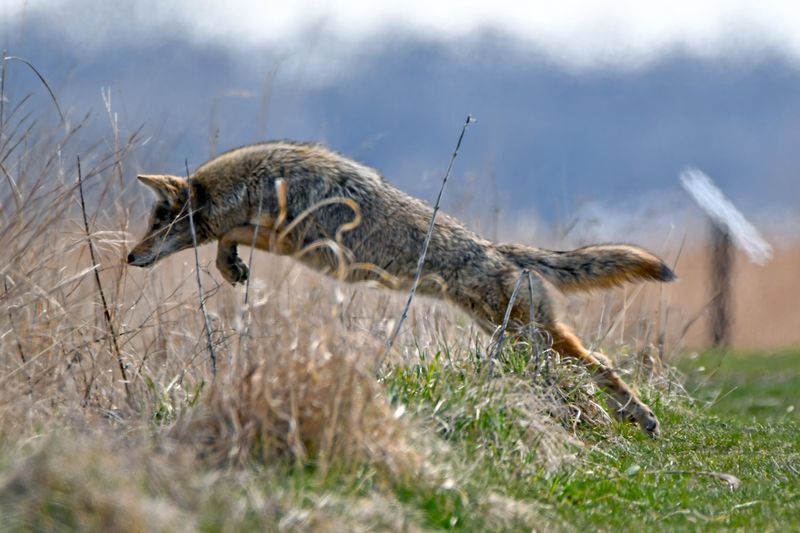
Coyotes are notorious for their ability to escape from seemingly secure enclosures. They are intelligent and resourceful, capable of finding or creating escape routes that might surprise even the most vigilant pet owner. This innate drive to roam and explore the world beyond confines is a natural part of their behavior. Their agility and problem-solving skills make them excellent escape artists.
Coyotes can jump high fences, dig under barriers, and squeeze through small gaps, making it quite a challenge to keep them contained. This poses a serious risk not only of losing the pet but also of them causing harm to local wildlife or getting injured themselves. Attempting to secure a coyote is often a futile endeavor, highlighting their need for freedom and space.
The stress of confinement can lead to persistent attempts to escape, further proving why domestic life is unsuitable for them. It’s another clear indication that their place is in the wild, where they are free to roam as nature intended.
9. Aggressive Tendencies
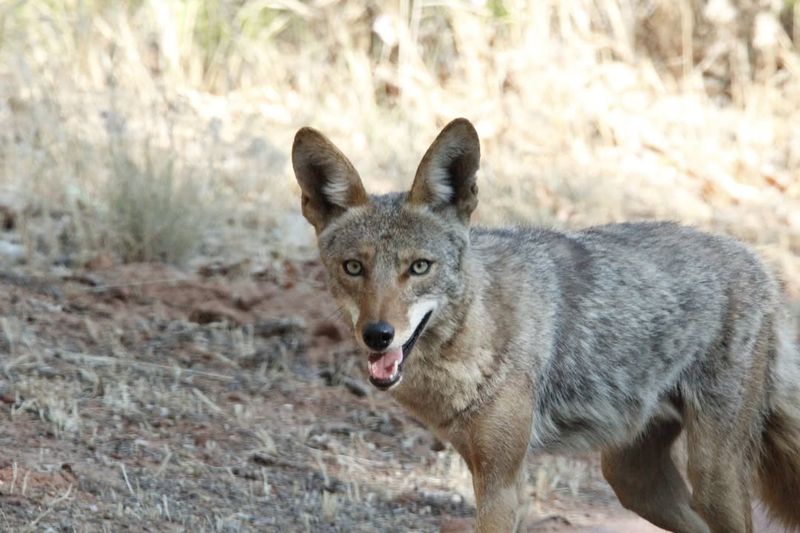
While coyotes might appear calm in certain situations, they can exhibit aggressive tendencies, especially when they feel threatened or cornered. This aggression is a natural defense mechanism and is not easily subdued through domestic training techniques. Such behavior poses a significant risk to humans and other animals sharing the space.
Their territorial nature means they may react violently to perceived intrusions, whether by humans or other pets. This aggression can be unpredictable, and managing it requires constant vigilance. Even if a coyote is raised in a domestic setting, this innate behavior can surface unexpectedly, leading to dangerous encounters.
Attempting to curb these tendencies through training is often ineffective. The wild instincts of a coyote are deeply embedded, and aggression is a part of their survival toolkit. This reinforces the notion that they are not suitable candidates for domestication, as their aggressive nature cannot be reliably controlled or predicted in a household environment.
10. Longevity Concerns
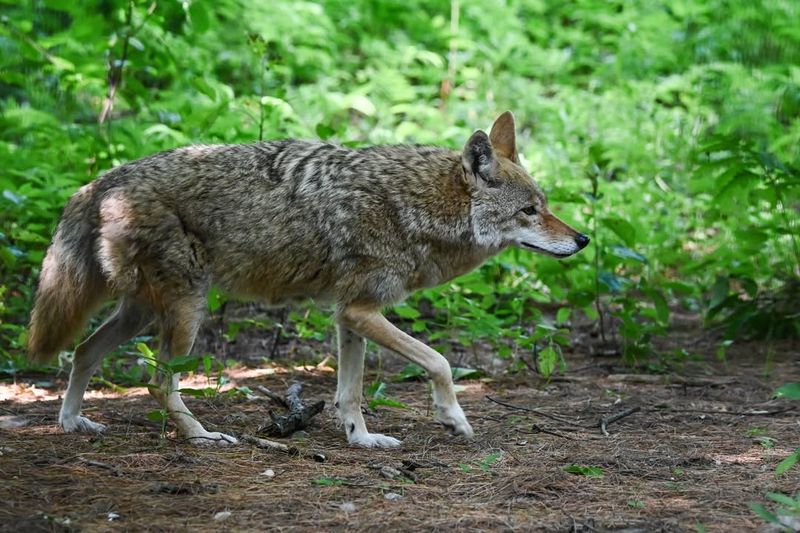
While longevity is generally seen as a positive trait in pets, it also means a longer commitment to managing their unique needs and challenges. This extended time frame can pose a significant burden on pet owners. As coyotes age, their needs may become even more complex, requiring specialized care that is hard to find and expensive.
Their health can decline rapidly if their wild instincts are not sufficiently catered to, leading to a host of age-related health issues. This can be stressful for both the coyote and its owner, who may struggle to provide the necessary care. Furthermore, the emotional and financial commitment required is far greater than with most traditional pets.
This longevity, coupled with their wild nature, makes it clear that they are not suited for life as a pet. Their natural environment is where they can age gracefully, free from the constraints and stresses of domestic life.
11. Vocalization Issues
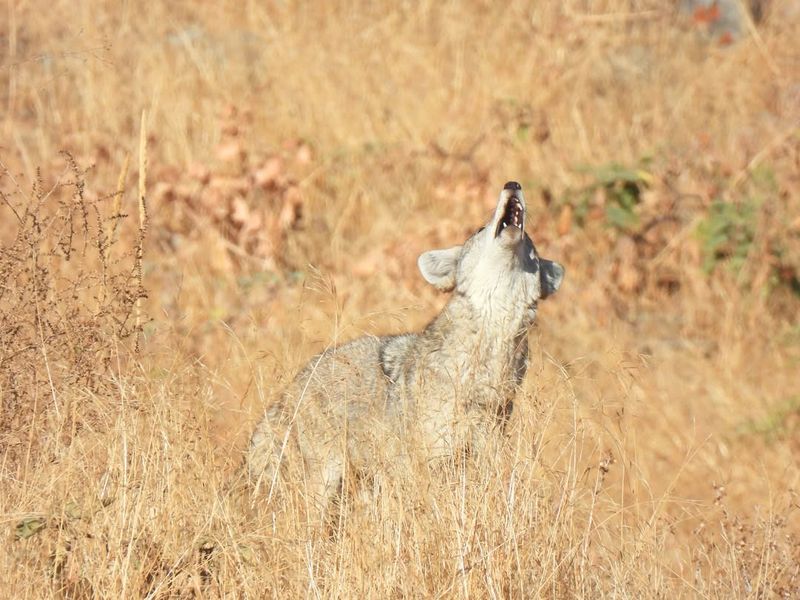
Coyotes are highly vocal animals, and their calls can range from howls to yips and barks. While in the wild, these sounds are a part of their communication system, used to establish territory and communicate with other coyotes. In a domestic setting, however, these vocalizations can become a major nuisance.
The sounds of a coyote howling at odd hours of the day or night can disturb the peace and quiet of any neighborhood. Their vocal nature is not something that can be easily trained out, and it often leads to complaints from neighbors. This makes them ill-suited to life in residential areas. Moreover, their vocalizations are often triggered by various stimuli, including sirens, other animals, or even the moon.
This unpredictability adds to the challenge of keeping them as pets. A coyote’s natural urge to vocalize is another clear sign that they belong in their wild habitats, where their voices blend harmoniously with the sounds of nature.
12. Pack Instincts
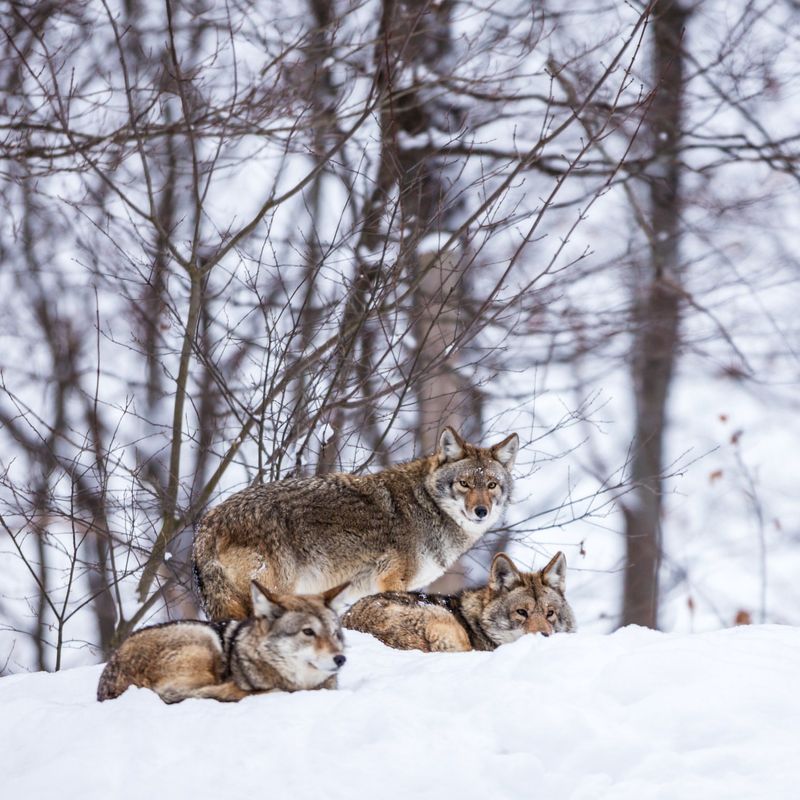
Coyotes have strong pack instincts, which can create challenges when attempting to domesticate them. Unlike dogs, which have been bred to cooperate and live harmoniously with humans, coyotes have evolved to rely on their pack structure to survive. This can lead to territorial disputes and dominance issues within a household. In a domestic environment, a coyote’s pack instincts may manifest in attempts to assert dominance over other pets or even family members.
This behavior is difficult to manage and can result in conflicts that are not easily resolved. Their need for a hierarchical structure is deeply ingrained and not something that can be easily altered through training. These instincts also mean they may not bond with humans in the way that domestic dogs do.
Their loyalty often lies with their own kind, making it hard to establish a stable relationship with them. Coyotes are best suited to environments where their pack instincts can be naturally expressed, rather than suppressed in a domestic setting.
13. Unsuitable For Training
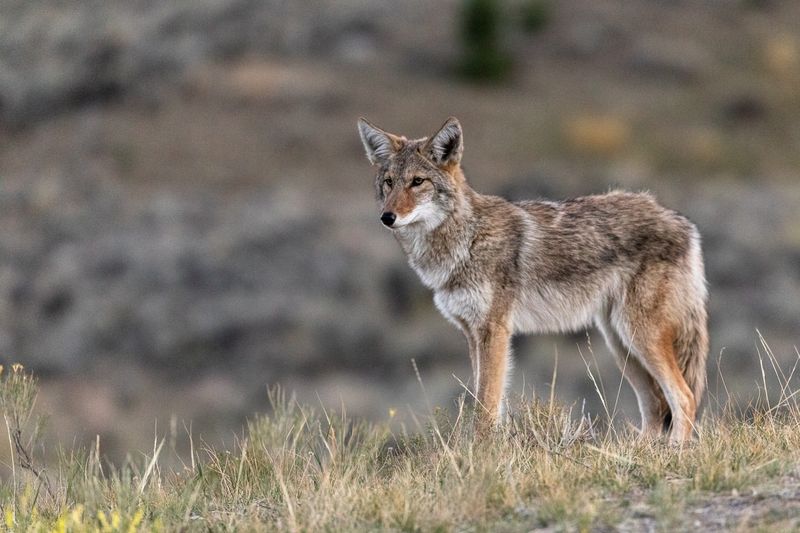
Their natural instincts and intelligence often make them resistant to traditional training methods. This can be incredibly frustrating for someone expecting a pet that follows commands and behaves predictably. Unlike dogs, which have been bred for trainability, coyotes have retained their wild instincts. This makes them less responsive to rewards-based training techniques, often ignoring commands and acting independently.
Their intelligence, while impressive, translates to cunning and self-reliance rather than obedience. The challenge of training a coyote is further compounded by their unpredictable nature. Even if some level of compliance is achieved, there’s no guarantee that a coyote will maintain this behavior over time.
This makes them unsuitable for anyone looking for a pet that integrates smoothly and predictably into family life. Their resistance to training highlights yet another reason why they are better left in the wild.
14. Emotional Needs
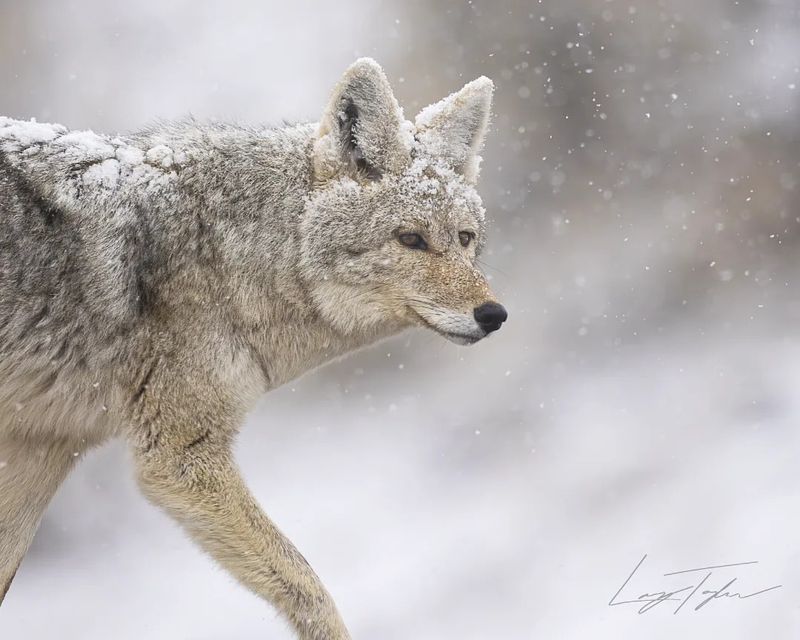
Coyotes have complex emotional needs that are difficult to satisfy in a domestic environment. They are independent creatures with strong survival instincts, which means they may not form the same bonds with humans as traditional pets do. This independence can be misconstrued as aloofness or indifference, leading to misunderstandings in their care.
Meeting a coyote’s emotional needs requires an understanding of their natural behaviors and instincts, which can be challenging to replicate in a home setting. They need stimulation and engagement that reflects their wild origins, something that is often lacking in domestic life. Without this, a coyote can become bored, anxious, and potentially destructive. Their emotional needs are best met in the wild, where they can engage in behaviors that are natural and fulfilling for them.
Attempting to meet these needs in a domestic setting is not only difficult but also often leads to frustration for both the coyote and the owner. This reinforces the idea that coyotes are creatures of the wild, not suitable for life as household pets.

